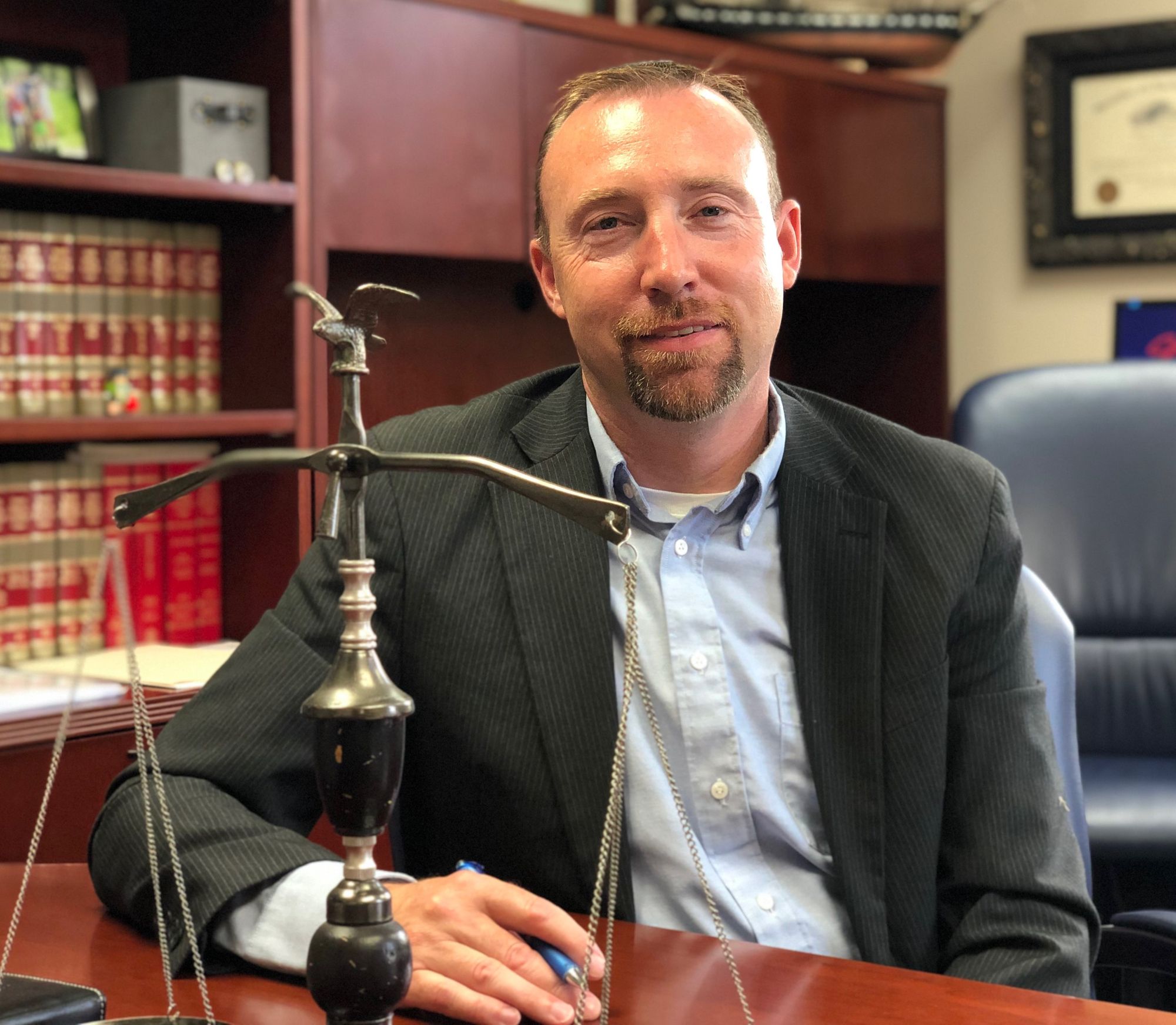In South Dakota, people convicted of crimes owe their victims millions of dollars in court-ordered restitution, but most of that debt is going unpaid and there is little remedy available for those harmed to get their money.
In theory, ordering criminals to pay for damages they caused gives courts a way to provide victims some measure of financial compensation and closure. The idea is so highly valued that state courts are required by law and a recent state constitutional amendment to order defendants to pay restitution anytime there is measurable financial harm done to a victim.
In practice, state data show, criminal restitution rarely benefits the people who need the most help after being victimized. The vast majority of criminal restitution never gets paid. Over the past three fiscal years, state courts have ordered criminals to pay more than $10.4 million to their victims. Of that, courts have collected only about $2.1 million for victims.
Over that same time period, the state Unified Judicial System has sent more than $64 million in overdue court-ordered debt to the newly created South Dakota Debt Obligation Recovery Center, which can enact sanctions to prompt people to pay up.
Most of the court debt is for restitution owed to crime victims, said Greg Sattizahn, state court administrator. About $9.2 million has been collected by the combined efforts of the state court system and the ORC. Of that total, more than a third was paid toward fines and fees and not to crime victims.
Despite low collection rates, many prosecutors and court system officials say restitution is a necessary piece of criminal sentencing because it helps make victims whole.

“It’s really viewed as part of the punishment, as part of the process to recognize that a person or an entity was harmed and that it is [the defendant’s] responsibility” to pay, Sattizahn said.
Critics of criminal restitution say the practice doesn’t help most victims and can actually do more harm than good. Many defendants do not have the money to pay restitution and have few legal options for raising the necessary cash. In effect, restitution keeps people who otherwise have paid their debts to society enmeshed in the criminal justice system long after they’ve left prison, parole supervision or probation, and can make them more likely to re-offend, said Libby Skarin, policy director for the South Dakota chapter of the American Civil Liberties Union.
“One of the things we have to recognize is that incarcerating low-income people or putting a lifetime of unpayable debt on their plates doesn’t deter crime, doesn’t serve a rehabilitative purpose and it doesn’t do anything for public safety,” Skarin said. “If we are putting someone into a debt that they are never going to pay … that is not wise. We are setting people up to fail.”
Created for victims but largely ineffective
Restitution became a formal piece of the U.S. criminal justice system in the late 1960s and early 1970s. At that time, state legislatures and justice officials across the country were taking a closer look at how crime victims were treated by the system. Adding financial restitution requirements to criminal sentencing laws was seen as a way to both acknowledge that a person had been harmed and show that offenders bore the responsibility for making their victims whole.
South Dakota’s restitution law dates back to 1978. In broad terms, the South Dakota law says any victim of a crime who suffered measurable monetary damage is entitled to restitution. The law requires prosecutors to ask for, and the judge to order, as much restitution as the defendant can reasonably be expected to pay.
In 2016, a victim’s right to restitution was enshrined in the South Dakota Constitution by a referendum vote on the so-called Marsy’s Law. A campaign funded by California billionaire Henry T. Nicholas III successfully convinced South Dakota voters to enact Marsy’s Law, which is a list of rights afforded to crime victims. One of those rights gives crime victims access to full and timely restitution.
“The reality is, if I’m a prosecutor, I have ‘X’ amount of discretion, but when it comes to this with Marsy’s Law and everything else, if the restitution is out there and it’s warranted, it’s my job to ask for it,” said Tim Bormann, a former prosecutor who is now chief of staff to South Dakota Attorney General Jason Ravnsborg.
Restitution in some cases has also been used as an alternative to sending non-violent defendants to prison. Often judges will suspend a defendant’s prison time or their whole sentence, up to and including scrubbing a felony conviction from a defendant’s criminal record, provided they are willing to pay restitution to their victims.
Once a restitution order has been handed down, the defendant is expected to pay up immediately, Sattizahn said. If the defendant can’t pay right away, it is up to their probation officer, the Department of Corrections or the local clerk of courts to devise a payment plan, Sattizahn said.
In the event that defendants don’t pay off their restitution quickly enough, crime victims can ask a judge to order a county sheriff to seize and sell a defendant’s assets in order to satisfy the debt, Sattizahn said. The state judicial system has gone so far as to create a standard form crime victims can use to request such orders.
As the amount of unpaid restitution continues to rise, officials are beginning to question the utility of large restitution orders against people who likely never will be able to repay their victims.
“Is it prudent? Are you creating paperwork that is just going to sit there and never produce anything? Unfortunately that is the situation we have … It is something that I think warrants looking at,” Bormann said.
Many victims not receiving court-ordered restitution
Here is a look at how much court-ordered restitution money was ordered to be paid by people convicted of crimes to their victims in each of the past three fiscal years, and how much of the money had been paid as of August 2019.
Fiscal year Restitution Paid so far % paid
2017 $4.6 million $648,706 14.1%
2018 $3.1 million $755,313 24.5%
2019 $2.7 million $689,484 25.1%
Total $10.4 million $2.1 million 20.2%
Source: South Dakota Unified Judicial System
New approaches needed?
Even after a defendant is convicted and restitution is ordered, many crime victims say they largely feel forgotten by criminal justice officials. In 2016, the non-profit Alliance for Safety and Justice published a report on the results of what it called a first-of-its-kind national survey of crime victims called “Crime Survivors Speak”. Two of every three crime victims surveyed said they got no help from law enforcement or the courts after being victimized.
Those who did get help rarely got it from the criminal justice system, the survey found. Instead, about 75 percent said they got help from family or hospitals. About one in 10 victims said they got some help from a prosecutor’s office and one in four said they got help from a law enforcement agency.
Crime victims who didn’t get help, especially teens and young adults between the ages of 18 and 24, were more likely to suffer long-term mental health effects and become involved with criminal activity themselves, the survey found. A similar survey has not been conducted in South Dakota.
The “Crime Survivors Speak” survey report noted that more than 70% of the crime victims surveyed said they wanted prosecutors to increase efforts to rehabilitate criminals, even if it meant there would be fewer criminal convictions.

Skarin, of the ACLU in South Dakota, said there also is the question of whether the harm caused by large, often uncollectible restitution orders is justifiable.
In South Dakota, for example, people who have been convicted of a felony are stripped of their right to vote until they have completed all conditions of their sentence, including paying restitution in full as well as all fines and fees. A person who has finished their prison time, completed probation or parole supervision yet still owes restitution is barred from registering to vote.
“It’s another way to segment people out of our society,” Skarin said. “That is part of the harm that outweighs the benefits and doesn’t do much, if anything, for the victim. We are putting barriers in peoples’ way that may lead to them not becoming fully engaged members of their community. That creates problems and leads to the revolving door of incarceration in a way that could create more victims.”
Having the right to vote, research has shown, can actually help reduce recidivism. Voting helps people engage and connect with their communities, Skarin said, which makes them less likely to commit crimes against their neighbors. Finding ways to restore defendants’ rights to vote is a piece of the ACLU’s Smart Justice Campaign, a nationwide campaign to reduce prison populations and improve outcomes in criminal justice.
The idea is to push the criminal justice system away from the current model that focuses on retribution, punishment and restitution in favor of a more rehabilitative model, Skarin said.
“What is the government’s obligation to a victim of crime? If the obligation is simply to order monies to be paid and then wash their hands of it, I don’t think that that serves the needs of the victim,” Skarin said. “That is not to say restitution is never warranted. I just don’t think it’s a cure-all, especially when you look at the effect of restitution on people who have no ability to pay.”




